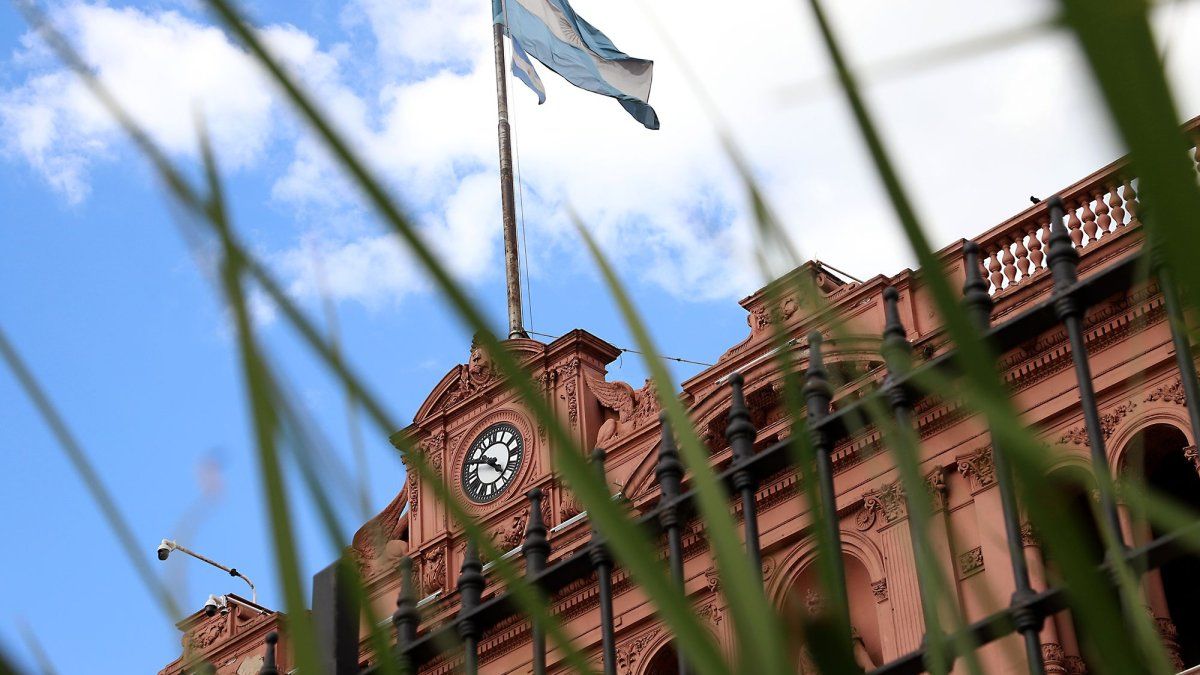The seminar organized by the business school of the University of Miamiunder the coordination of Guillermo Calvo from Columbia University, brought together prominent figures, with differences of nuances, ideologically aligned to Javier Milei.
During the sessions, The economic challenges facing Argentina were analyzed. This article offers a critical analysis of the discussions held, highlighting strengths, gaps and biases in the approaches presented.
The majority of participants agreed that an abrupt lifting of the “exchange stocks established by Macri” could cause an inflationary effect or “pass-through”, revealing a potential financial and/or governance crisis. As emphasized, “a sudden change, without sufficient reserves or credibility, is a recipe for political-social chaos.”
However, Beyond the diagnosis, the concrete proposals were timid, weak, and punctual, either due to lack of information on the purpose of the seminar or due to the lack of solutions.
Guillermo Calvo: outstanding
Dr. Calvo stood out for the synthetic and surgical propositional challenge (not understood), evidencing an immense contrast with the participants, posing risks of political weakness in LLA, placing emphasis on “credibility” and the dangerous lifting of the “traps.” His contribution not only challenged the debate of proposals, but unintentionally highlighted the limitations of the ultra-monetarist frameworks represented in the seminar.
IMG_2649.JPG
Carlos Rodríguez: raw
Rodríguez’s intervention was bold and realistic (true to his theoretical framework and imprint), I would be watching a devaluation as inevitablewhether by floating, lifting the stocks or other means. His criticism of “nationalization of the BCRA debt” (Tigani, Pablo; Page 12, November 10, 2024), which he described as a covert maneuver, was especially incisive. I mention the “below the line” (hidden deficit capitalized in debt of 1.2% of GDP). However, his analysis neglected the social and political consequences, essential to evaluate the sustainability of any economic program that contemplates the lifting of the “Macri stocks.”
- He stated that he tripled his fortune in bonds and stocks, but his life became more expensive.
- It agreed at 1.2% below the line.
- “The program was born badly.”
- “I would not accept being Minister of Economy today”
Pablo Guidotti: omissions
Guidotti walked an iron road, he was distressed by those who had to endure nine restructurings of Argentine debt and he avoided referring to the heavy indebtedness contracted in the nineties when he served as vice minister in the second term of Carlos Menemnor to the recent critical 2016-2017 debt period under the administration of Mauricio Macri, evidencing a worrying bias, from an academic point of view. His allusion to refinancing and inadvertence of frequently refinanced debts (contracted to a greater extent during his administration and the Macri government) weakens the credibility of his arguments. This silence is especially striking considering the following omitted data.
- During 1991-2000, the debt grew by US$92 billion (142% in 9 years). Dollars from between 25 and 35 years ago.
- New loans for US$106 billion between 2016 and 2017.
- Doubling of the debt/GDP ratio of the Sturzenegger-Caputo (Macri) team, going from 53% to 92% in four years, plus the ignored heavy inheritance of Leliqs from the BCRA.
- The 65% reduction achieved in 2005 as a successful restructuring model was completely unknown in its analysis.
Ernesto Talvi: pragmatic realism
Talvi questioned the viability of a pure floating exchange rate model, calling it a “jump into the void.” His warning about insufficient reserves and the need for firm commitments from the IMF was forceful. He made a brief mention of “carry trade”. However, his analysis could have been enriched by addressing the historical and recent roots of IMF distrust. Synthesis:
- “They need reserves, but they do not generate enough”
- I express doubts that this program is politically sustainable.
- “Pure flotation” is unimaginable, in his words. He added, “it is a leap into the void.”
- Between US$16 billion and US$20 billion are needed according to his calculations, which seem conservative, because he then warned about the “risk of falling short.”
- He asked for a firm commitment from the IMF, he said “no, lip service.”
Carmen Reinhart: “What is not seen”
Reinhart shone by highlighting the “arrears” or hidden liabilities. His observation about the lack of transparency in accounting and his warning about substitute programs to the current one that ended badly resonate with Argentina’s historical context. However, their analysis lacked concrete proposals to address these challenges.
- It confirmed that they are not measuring well, the “below the line”. She is concerned with “what is not seen.” There are many hidden things (carry trade).
- He talked about “arrears” and “money destabilization”, stating that these programs rarely end well. He talked about how in 1985 it didn’t work. He corrected Guidotti, told him “nothing lasts” (Calvo’s concept), that the entry of real and financial dollars is different. He warned that: “attracting commercial dollars is not receiving attention.
Guillermo Mondino: fleeting
- He confirmed “we must ask for US$15 or 20 billion more from the IMF. But that’s not going to happen, he implied. He reaffirmed to Talvi, “we must not fall short.”
- He proposed a “rate anchor” or “monetary aggregates.”
- He explored a partial exit from the stocks.
- It was shocking to hear an expert and former Domingo Cavallo official say, “there is no idea what the equilibrium exchange rate is.”
- He expressed that the day before the elections no one will have pesos. Hinting that perhaps two months before a run could be generated, especially what no one said, nor did he, it would happen “if he removes the peso stocks” that the banks have.
Iván Werning: uninhibited
- Sincere, he acknowledged “below the line is true.” He confessed that the “marketing” of the controlled deficit is undeniable.
- The fear of Peronism was moving. It is a campaign political practice that has no academic relationship. Someone else mentioned Peronism with apprehension.
- He spoke out in favor of continuing with the stocks.
Pearls: “Without liquefaction the expense would not have been reduced.” “Illiquidity served to buy dollars.” (Talvi). “Too much success”, “10 years of Menem were reversed in one day, if he doesn’t win in October, everything goes to hell”, “under accounting, (they use the cash basis) and they raised the previous one to lower the present one” (Gagliani ). With his proverbial moderation Artana mentioned (1% below the line), (Seguiguchi) asked himself: – Can it continue to be adjusted?
Final Thoughts
Except for Calvo’s lucid initial proposal, the seminar evidenced a worrying disconnection between graduates of American universities and the social and political realities of Argentina. While there was consensus on the need for credibility and the urgency of attracting commercial dollars (as Reinhart highlighted), the proposed solutions lacked depth and long-term viability.
The Argentine economy requires a transdisciplinary approach that integrates economics, politics and social analysis. The success of any economic program lies not only in its technical design, but in its ability to generate lasting political and social consensus. Without a solid anchor in credibility and governability, the economic program could face rapid erosion, exacerbating the country’s already delicate socioeconomic situation.
In summary:
There was excess koinomicsthe superficial use of technical language that creates a false impression of consensus, but in reality lacks real and constructive debate. It is very common in this type of “similar” seminars to ignore the dynamic advantages of an authentic dialectic. The truth is inescapable: with 1.2% of GDP debt growing “below the line” and a 4% contraction in GDP, the combined effect of more debt and less growth should set off all alarms. Without a radical change in the way we address these problems, the country will continue to be trapped in a vicious cycle of debt and stagnation.
Director of Esperanza Foundation. https://fundacionesperanza.com.ar/
UBA Postgraduate Professor and Master’s Degrees at private universities. Master in International Economic Policy, Doctor in Political Science, author of 6 books
Source: Ambito




